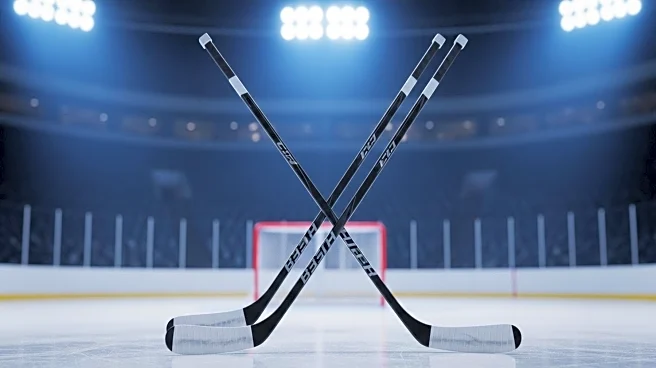What's Happening?
Quinn Hughes, captain of the Vancouver Canucks, has openly discussed the possibility of playing alongside his brothers, Jack and Luke Hughes, in the NHL. This sentiment was echoed by Jack Hughes during a recent appearance on the podcast '32 Thoughts.' The idea of the Hughes brothers uniting on the ice has been a topic of interest among fans and analysts, given their individual successes in the league. The New Jersey Devils, where Jack currently plays, are participating in the 2025 Prospects Challenge, showcasing emerging talent. Meanwhile, notable NHL players like Kirill Kaprizov have made headlines by turning down significant contract offers, indicating a dynamic and evolving landscape in professional hockey.
Why It's Important?
The prospect of the Hughes brothers playing together in the NHL is significant for several reasons. It highlights the growing trend of family connections in professional sports, which can enhance team dynamics and fan engagement. Additionally, the potential unification of the Hughes brothers could impact team strategies and marketability, drawing increased attention to the franchises involved. The NHL's competitive environment is further underscored by players like Kirill Kaprizov rejecting record-breaking contracts, suggesting shifts in player priorities and contract negotiations. These developments could influence future team compositions and league policies.
What's Next?
As the Hughes brothers continue to express their desire to play together, teams may explore trade or acquisition opportunities to facilitate this. The New Jersey Devils' participation in the Prospects Challenge could provide insights into emerging players who might complement the Hughes brothers' playing style. Additionally, the NHL will likely continue to see high-profile contract negotiations, as players like Jack Eichel approach the end of their current deals. These factors could lead to significant roster changes and strategic planning among NHL teams.
Beyond the Headlines
The potential for the Hughes brothers to play together raises questions about the influence of familial ties in professional sports. It could lead to discussions on how such dynamics affect team chemistry and performance. Moreover, the rejection of substantial contracts by players like Kaprizov may prompt a reevaluation of player motivations and the factors driving their career decisions. These elements could contribute to broader conversations about the future of player management and team-building strategies in the NHL.











